
How good are Hong Kong’s start-up incubators and accelerators?
Venture capital and mentorship are keys to helping fledgling companies take wing, but city's experience of providing both is limited. Swire’s blueprint programme and Cyberport have been helpful for some; others look overseas
Although research indicates nine out of 10 start-ups fail, a growing number of support services have been springing up in Hong Kong hoping to beat the odds in their search for new talent.
Obviously, start-ups are not created equally, but neither are the incubators and accelerators they rely on to make their dreams successful. Some entrepreneurs in the city have found more support and experience by looking farther afield.
Hongkongers Johnny Au Yeung Chun and David Tang Chun-yat moved to Taipei last month to join Appworks. The largest accelerator programme in Asia, its alumni include table booking app Eztable and e-commerce company Kuo Brothers, which is now listed on the island’s stock exchange. Although the duo were rejected by a Hong Kong incubator, their start-up GetMeCV, an online job matching platform, was selected to be part of Appworks’ latest cohort.
While incubators inject funds into start-ups hoping they will eventually “hatch” into successful businesses, accelerators take a more hands-on approach. They offer intensive courses that run for a fixed period, usually from three to six months, during which the teams are guided by experienced mentors.
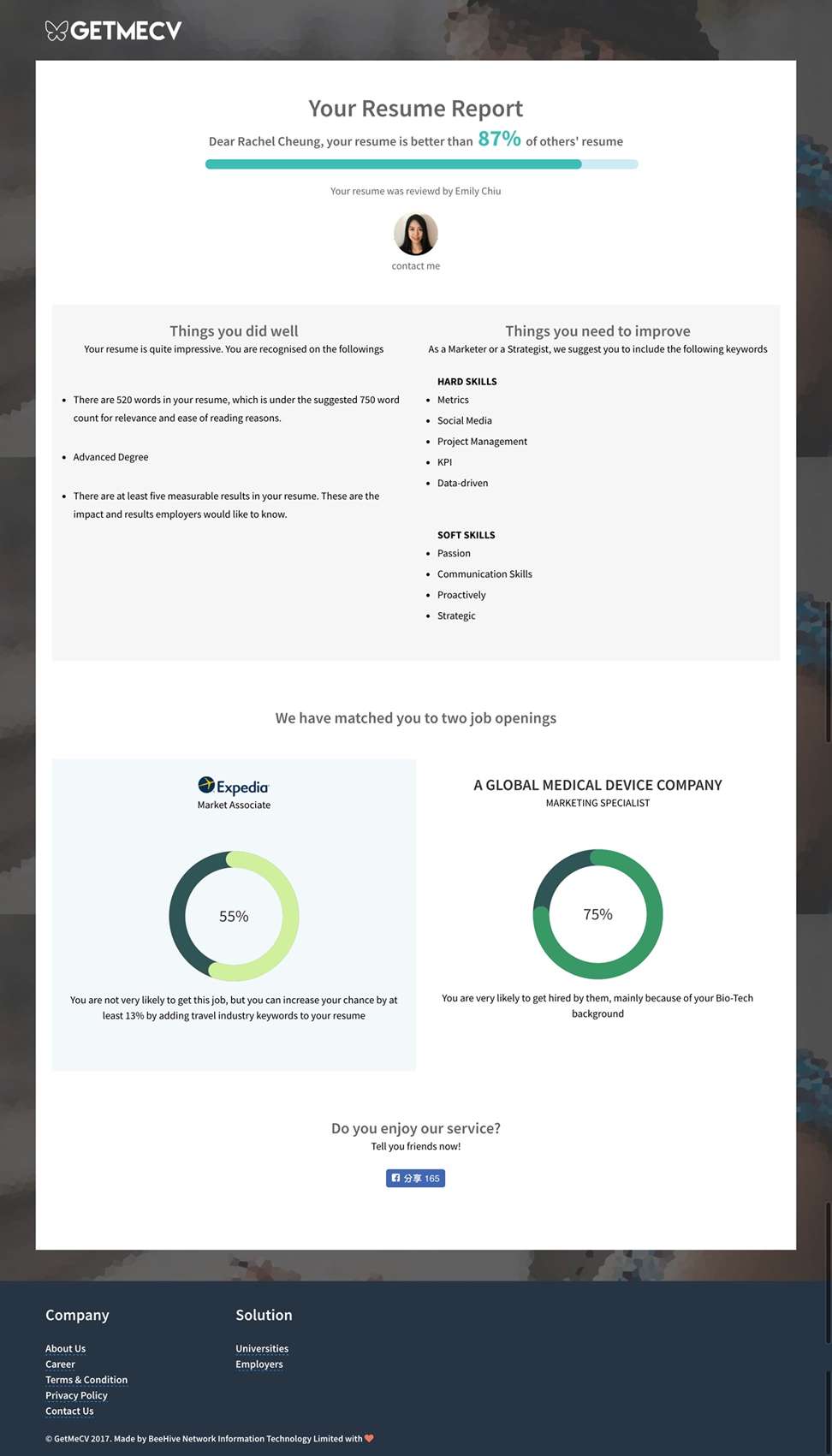
Tang is no stranger to failure. Neither of his previous start-ups – Mews, a user-driven news website; and Beehive, a market research app that offered users a financial incentive for answering basic questions – took off. Nevertheless, driven by the entrepreneurial spirit, Tang remains undeterred. “We don’t do it because it’s easy,” he says.
This time round, they are trying to solve a problem they have personally encountered and are passionate about – how to find jobs for fresh graduates. “Our platform is not a job-searching site because jobs find you, rather than vice versa,” says Tang. Job hunters simply upload their resume onto the site, which recruiters can browse for potential employees.
A factor that helped them stand out from other Appworks applicants was team dynamics – a key criterion evaluated by accelerators and investors. Best friends since secondary school, the duo have complementary qualities. Eloquent and gregarious, Tang is a natural salesman brimming with ideas. Though more reserved, Au Yeung is disciplined and attentive to detail, keeping the team grounded.
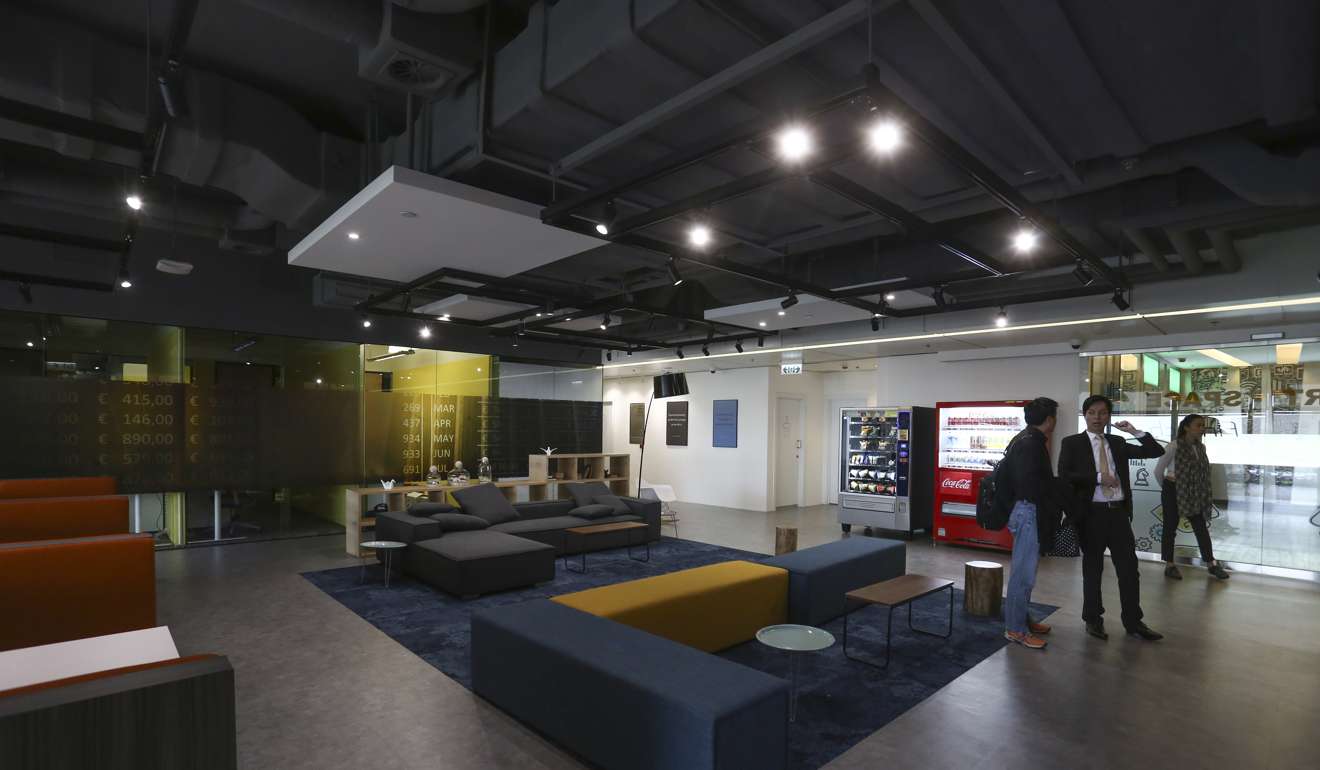
Hong Kong still lacks an independent accelerator that’s comparable to Appworks in scale and reputation. However, in recent years, corporations have begun launching in-house programmes to nurture start-ups. These programmes serve as a marketing function in that they help with brand-building. And by focusing on specific areas related to their core businesses – such as fintech, retail or the Internet of Things – the start-ups they adopt can hopefully give something back.
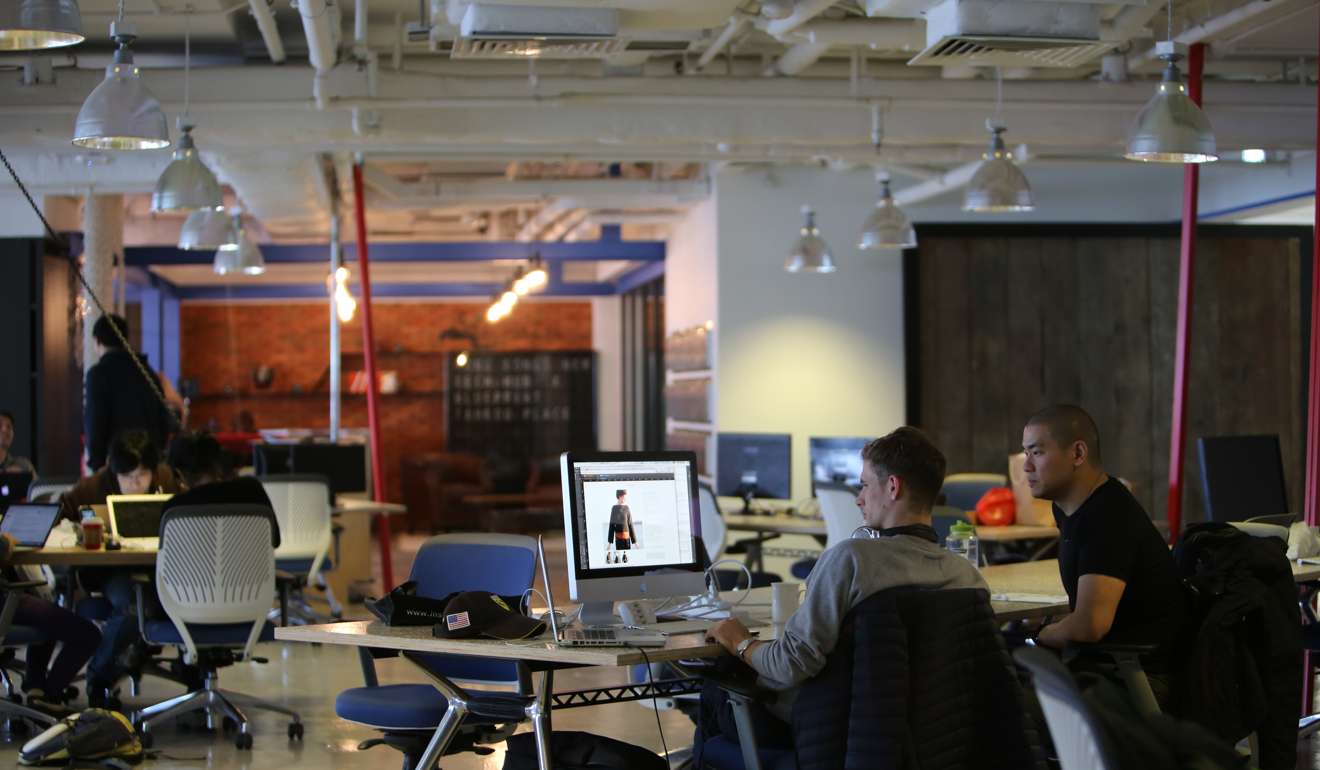
Hong Kong has blueprint, a business-to-business-focused accelerator run by Swire Properties. The company describes blueprint as a no-strings-attached programme and part of its corporate innovation strategy. Start-ups taken under its wing in the past two years have tested their products with various Swire companies and received feedback. Unlike regular accelerators, the company does not take an equity stake in the start-ups.
“We are really looking for a way to integrate innovative concepts ... how to build these companies up using the resources we have, and also how to disrupt our own group of companies with these new ideas and foster a belief and curiosity in innovation,” a Swire Properties spokesman says.
We joined the Cyberport incubation programme mainly for the funding. There wasn’t much mentorship
It has so far had mixed results – although the start-ups raised an impressive US$13.5 million through the programme, only 19 of 41 have received funding. Swire Properties is now revamping the programme.
“We think this re-evaluation is a good opportunity for us to look at what the needs of our business really are, and become a little bit more targeted with our selection criteria,” the spokesman says.
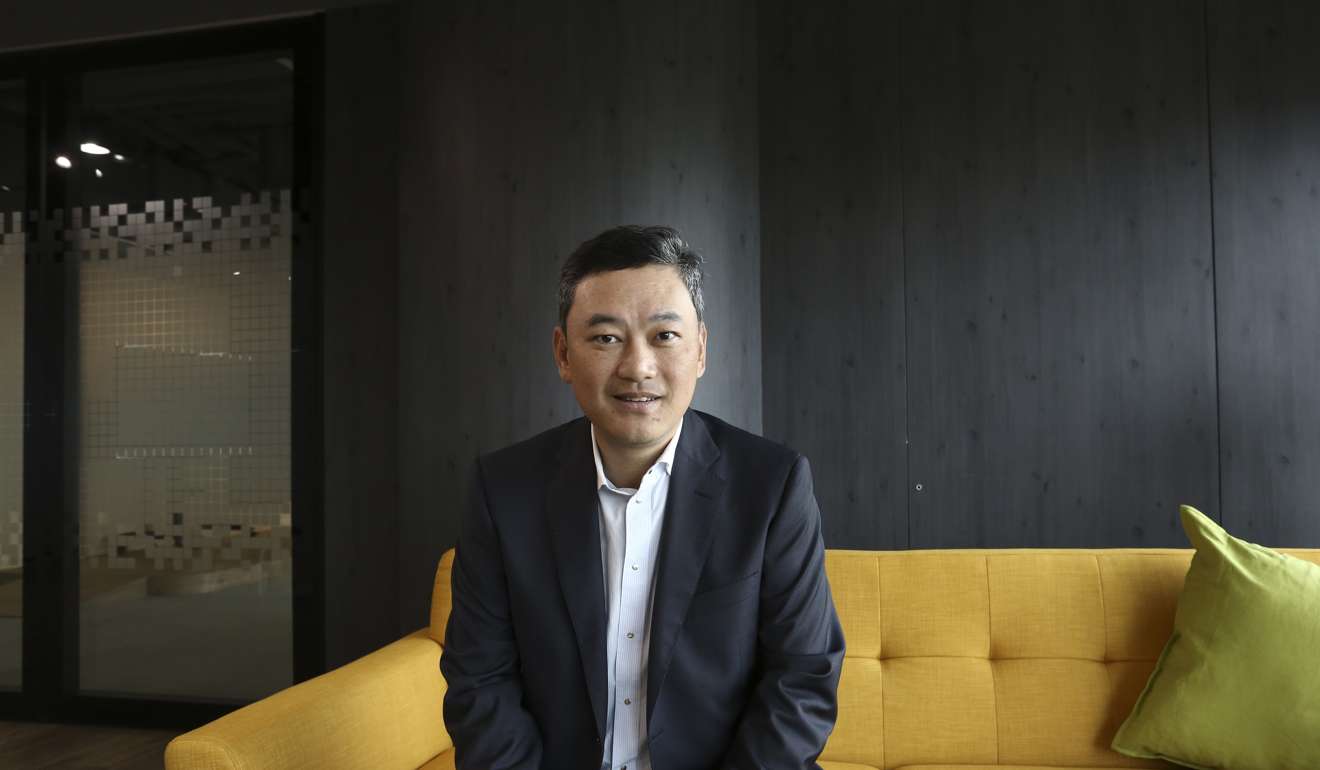
Accelerator programmes are naturally an appealing proposition to start-ups, but relinquishing a stake in their baby can be a dicey trade-off. Success in raising venture capital, or making a meaningful exit through acquisition or a stock exchange listing, is not guaranteed. Consider the experience of Y Combinator, for example – the influential accelerator behind Dropbox, Airbnb and Reddit. Out of the 1,464 companies it has funded, only 52 are now worth more than US$100 million, and many others have been dissolved.
Most accelerators take a standard equity stake of between 5 per cent and 7 per cent in start-ups they support – despite often limited funding and uncertain returns. Some are so new that they, too, could also be considered start-ups – and may have no credible track record to act as consultants.
“What you’re looking for is smart money, money with benefits. I’ll invest this money but I will open this door for you, introduce you to this customer or help you hire this person. Those are the important things about building a business. It’s the team, product and the market,” says Iain Reed, founding president of the Hong Kong chapter of TiE, a global non-profit that fosters entrepreneurship. TiE will launch its own incubation programme later this year.
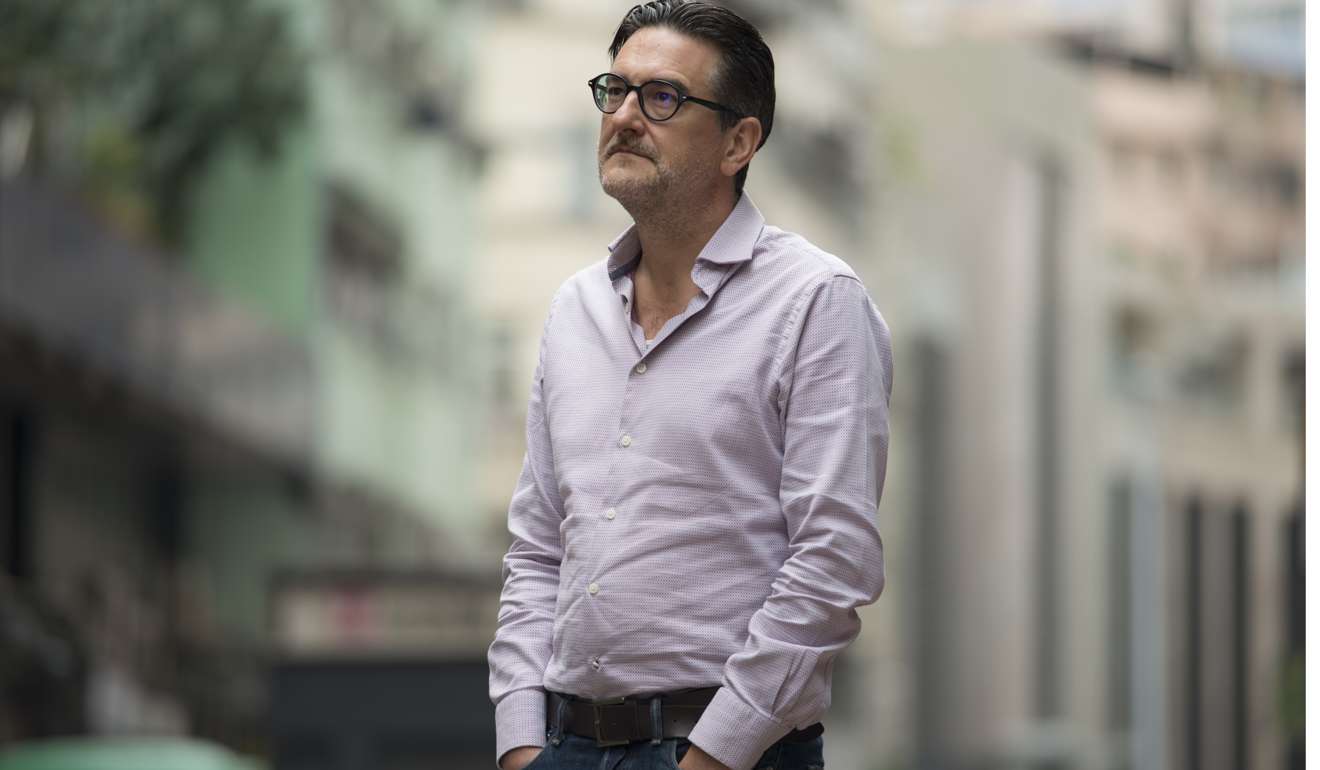
“The way I describe mentorship is sharing all the mistakes I’ve made in the last 15 years over my career in this business,” says Reed.
However, a lot of mentors in accelerators and incubators are not entrepreneurs themselves. Their advice may not necessarily be helpful to start-ups, he adds. “It’s all theory, and it can be quite dangerous for entrepreneurs. They end up going off on funny tangents, which they shouldn’t be doing.”
Reed’s opinion is shared by Xania Wong, founder of Jobdoh, an online platform for recruiting temporary workers. “Even if the mentors are good in traditional business, when you’re talking about a start-up it’s not quite the same thing. I think their expertise is not always relevant,” says Wong, who thinks most local programmes have little to offer. “There are very few successful start-ups in Hong Kong and the really stellar ones are not part of their network.”
Wong and her team participated simultaneously in two such programmes. “We joined the Cyberport incubation programme mainly for the funding. There wasn’t much mentorship. As for blueprint, it’s my favourite accelerator in Hong Kong because of their network, mentorship and free space. The combination ... is quite useful,” she says.
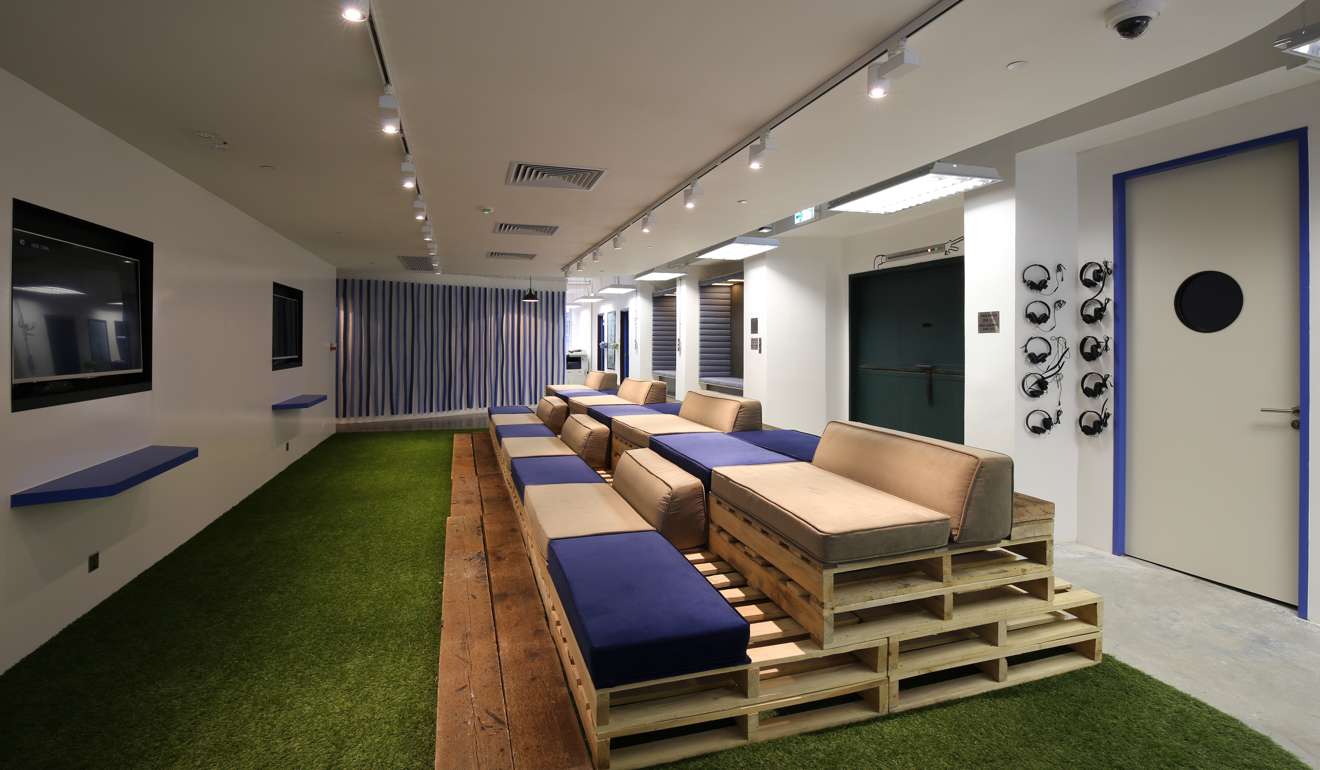
Under Seedcamp’s wing, she had the chance to book one-hour sessions with executives of successful start-ups such as beauty company Birchbox, where she was able to solicit advice and learn about best practice. It also connected her with an international network of investors.
Seedcamp offers £25,000 (HK$240,000) in return for a 5 per cent equity stake. Although Wong found it a big sacrifice, she still thinks it a worthy trade-off.
“We had five months when our company almost had to close down because of issues between the shareholders. Seedcamp was very supportive throughout because they’re familiar with these kind of issues, so they won’t get cold feet easily. Several of our investors have pulled out but they did not,” says Wong. “And that kind of support is really valuable.”

